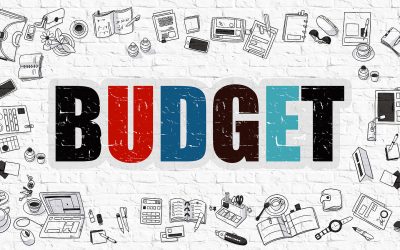The National Treasury published its annual Budget Review on 26 February 2020 (‘the Budget Review’). The above-inflation proposed adjustments to the progressive tax brackets, rather than anticipated increases in tax rates, surprised many commentators. Chapter 4 and Annexure C of the Budget Review contain more detailed tax proposals that could have a significant impact on those affected by it. This article reviews a selection of these proposals.
Restriction of net interest expense deductions
Interest deductions are currently limited where interest is paid to certain connected persons who are not taxed on the interest (s 23M) or in respect of loans that arise from acquisition or reorganisation transactions (s 23N) . The Budget Review proposes further restrictions on the deductibility of interest. A discussion document was published at the same time as the Budget Review. This document suggests that the restriction should apply to all South African entities that form part of a multinational group. It further appears as if the restriction is intended to apply to the net interest expenses incurred in respect of all debt, as opposed to only debt from connected persons. The Budget Review indicates that the National Treasury intends to set the restriction at 30% of earnings for a year. It is proposed that this change will apply to years of assessment commencing on or after 1 January 2021.
Assessed losses
Companies that suffer losses in the course of carrying on a trade can currently carry the resulting assessed losses forward and apply these against taxable income without any restriction. The National Treasury noted that the international trend has been to restrict this practice.
The Budget Review proposes that the utilisation of assessed losses should be restricted to 80% of taxable income. The proposal does not provide more detail as this stage, but it is presumed that this would mean that a company would ultimately be able to utilise the full amount of the assessed loss but that it would be required to pay tax on at least 20% of its taxable income before the carried forward loss is taken into account for any year. It is anticipated that this proposal will be fleshed out significantly with more detailed rules and exceptions as part of the 2020 tax law amendment cycle before it can be implemented.
Tax incentives
The Budget Review indicates that the National Treasury has the intention to increase the corporate tax base in order to be able to ultimately reduce the corporate tax rate. It indicates that in broadening the tax base it will introduce sunset clauses for various incentives and not extend others. The special economic zones (ss 12R and 12S) and venture capital company (s 12J) incentives are specifically mentioned in the Budget Review as incentives to be reviewed in this regard.
Residence and the foreign remuneration exemption
The amendments to section 10(1)(o)(ii), which provides an exemption for certain foreign earned remuneration, came into effect on 1 March 2020. The National Treasury proposed that the tax-free remuneration amount should be increased from R1 million to R1,25 million per year.
The relevance of this exemption to taxpayers is closely linked to the residence status of a taxpayer. The Budget Review proposes that the concept of emigration as recognised by the South African Reserve Bank should be phased out. Some taxpayers and advisors have construed this process to result in a break in tax residence. Like the documentation on the SARS website in this regard, the Budget Review reiterates that this is only one of the factors considered by SARS in determining whether a person is a resident of South Africa for tax purposes. It is not a decisive factor.
When a taxpayer ceases to be a resident of South Africa for tax purposes, capital gains tax is levied on certain assets (a so-called exit tax). The Budget Review proposes to close a loophole that exists in respect of certain shareholdings in foreign companies.








